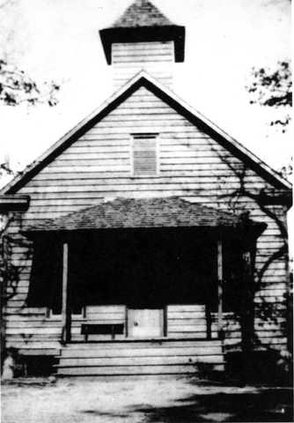Have you ever wondered what young men in their late teens and early 20s did for entertainment in 1875? Historic Effingham Society has a document which was a minutes book from “The Stonewall Debating Club” which was organized on Aug. 23, 1875. J.M. Gnann, aged 25, was the chair of the first meeting. Officers elected were J.G. Pharis, president; H.M. Treacher, vice president; J.M. Gnann, secretary; and G.A. Gnann, treasurer. The meetings were held every Saturday night before the first and third Sundays. The president was to keep order and decide all questions after the members debated if they had a tied vote on the results of the debate. The treasurer was to collect dues of 10 cents and pay expenses. Monies paid out included 85 cents for a lamp, 40 cents for a book for minutes, and 10 to 20 cents off and on for paper, ink or pens.
Members met in the long-gone Bethel School which was located on current property of Alan and Cathy Heidt off Eugene Gnann Road. The Heidt property belonged to his maternal grandparents, Nesbit and Bertha Thomas Arnsdorff. (Later on, a second Bethel School was located on Weitman property, now that of Walter Weitman, just off of the present Springfield-Egypt Road, to the left off Highway 21 a few miles north of the Bethel Church.)
Debating members included: J.A. Pharis, J.M. Gnann, H.M. Treacher, G.A. Gnann, J.J. Hinely, J.U. Hinely, J.H. Hinely, J.W. Edwards, J.C. Geiger, C.J. Freyermuth, M.K. Freyermuth, C.E. Freyermuth, B.N. Shearouse, A.B. Arnsdorff, C.F. Mingledorff, O.G. Mingledorff, J.S. Gnann, W.B. Derrick, H.J. Biddenback, W.H. Arnsdorff, L.E. Seckinger, F.R. Tarver, E.G. Weitman and G.H. Berry.
It appears the group met through 1880, according to the book. They recorded the debating teams weekly and the subjects discussed. The stronger side in debate was declared the winner and it was recorded in the minutes. Subjects debated included: Which is more injurious to the country, pride or drunkenness? Which is more useful to man, the cow or the dog? Which is the most pleasure to man, the country or the city life? Which has the greatest influence over man, love or anger? Which can be the most derived from, cows or horses? Which is the most beautiful, the works of art or nature? Which is the most beneficial, a finished education or an independent fortune? Which leads the happiest life, farmers or merchants? Is intemperance a greater evil than war? Which will influence a man to the greatest extent, hope of reward or fear of punishment? Which will influence a man to the greatest extent, the love of a woman or the love of money? Which is most worthy of the greatest honor, Columbus for discovering America or Washington for fighting for its liberties? Which is more to be derived from, the cow or the hog? Which affords the most pleasure to a man, married or single life? Were the whites justifiable for driving the Indians from this country? Which is most beneficial to our country, women or money? Which is most beautiful to man, the animal kingdom or the vegetable kingdom? Is cotton planting a benefit or injury to the southern states? Which will influence a man to the greatest extent, laziness or smartness? And was emancipation of slaves beneficial to our country or not?
Members had to have a good excuse if not present at the meetings. The absent members were noted in the minutes. A committee looked into absences and, if necessary, a member could be court-martialed for not attending regularly.
It is rather amazing to see how men entertained themselves in this manner and how they viewed the world at the time. Without fast cars, electricity or modern conveniences, they were able to amuse themselves, and their amusement provides us entertainment today as we read their records. Drop by Effingham Museum and see how the debates came out by perusing this journal.
This article originally ran in 2006 and I later found that the school location was incorrect. It is rerun today by request.
Correction: In the “school days” column on Aug. 9, Newell Rahn was misidentified as Neivel Rahn.
This was written by Susan Exley of Historic Effingham Society. Information regarding Bethel School came from Libby A. Heidt and the History of Bethel Lutheran Church. If you have photos, comments or information to share, contact Susan Exley at 754-6681 or email her at: susanexley@historiceffinghamsociety.org.








